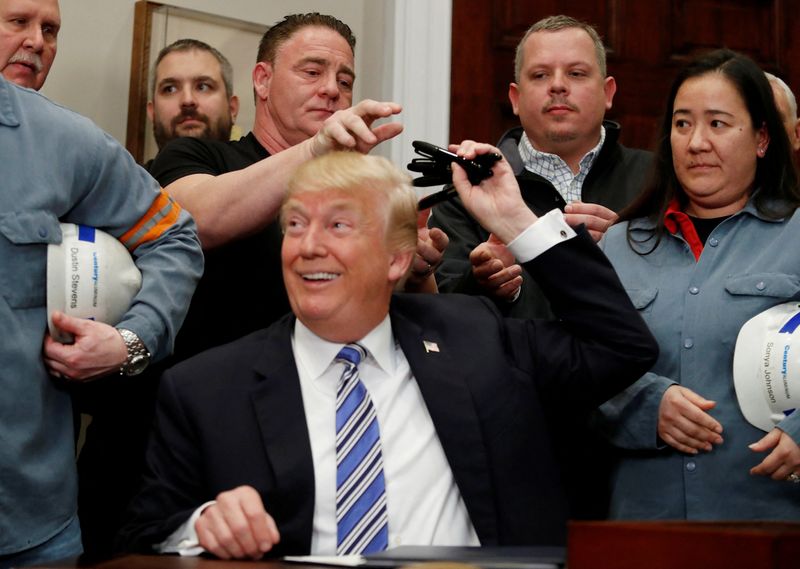By John Kruzel
WASHINGTON (Reuters) - The U.S. Supreme Court on Monday declined to hear a challenge to U.S. steel import tariffs imposed in 2018 under former President Donald Trump - a policy he touted as defending American national security - and largely maintained by President Joe Biden.
The justices turned away an appeal by a group of U.S.-based steel importers of a lower court's ruling rejecting their challenge to the Trump administration's imposition of tariffs under a Cold War-era trade law.
At issue in the case was whether the findings in a 2018 report to Trump that recommended he impose steel tariffs were subject to second-guessing by courts under federal administrative law.
The report by then-Commerce Secretary Wilbur Ross determined that excessive steel imports were threatening U.S. national security, with the imports causing domestic steel plants to close and undermining the U.S. "ability to meet national security production requirements in a national emergency." In March 2018, Trump ordered a 25% tariff on steel imports from most nations. He also ordered a 10% tariff on aluminum imports.
Several companies that import steel products, including subsidiaries of Colmar, Pennsylvania-based Dorman Products (NASDAQ:DORM) Inc and Turkish steel producer Borusan Mannesmann, sued in the U.S. Court of International Trade. They argued that the Ross report was "arbitrary and capricious" under a federal law called the Administrative Procedure Act.
The trade court in 2021 ruled against the steel importers, finding that the Ross report could not be challenged in court because it was not a "final agency action."
On appeal, the U.S. Court of Appeals for the Federal Circuit broke with the trade court, ruling that the Ross findings did constitute a final agency action. However, the Federal Circuit found that the report's findings were not subject to court review under administrative law and that the policy otherwise complied with federal law.
The Biden administration, which has largely maintained Trump's tariff policy, urged the justices not to take up the appeal. Trump is a Republican and Biden a Democrat.
In imposing the tariffs, Trump invoked Section 232 of the Trade Act of 1962, which allows a U.S. president to restrict imports of goods critical to national security. Exemptions were granted to some countries, but the tariffs became an irritant in foreign relations including with European allies.
Trump at the time said the tariffs were necessary for national security to maintain healthy domestic production, and said the United States was committed to building its ships, planes and other military equipment with American steel.

During his presidency, Trump rattled the world trade order by imposing unilateral tariffs to combat what he called unfair trade practices by China, the European Union and other major trading partners of the United States. China and some other countries retaliated by imposing tariffs on U.S. goods.
The Supreme Court last year refused to hear a separate challenge by steel companies to Trump's 2018 decision to double tariffs on steel imports from Turkey, also on national security grounds.